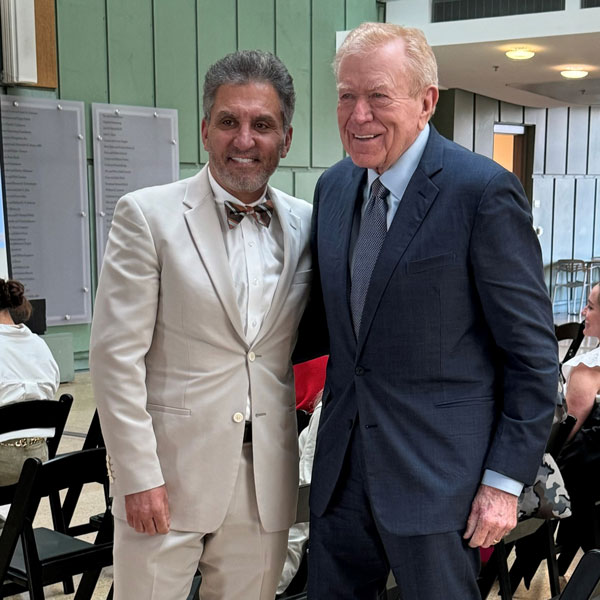Transplant program’s growth gives new life, hope

The lack of donors for kidney transplants is a growing public health crisis in the United States, with more than 90,000 people waiting for a kidney but only 20,000 transplants performed annually.
The Division of Immunology and Organ Transplantation in the Department of Surgery is working to shrink this gap, increasing its live donor kidney transplant volume substantially in the last 2 years.
In 2023, the team, led by Steve Bynon, MD, division director and professor of surgery, and Hassan Ibrahim, MD, medical director of abdominal transplantation, completed 132 kidney transplants – 44 from deceased donors and 88 from live donations – the highest annual volume in the history of the program.
This significant increase in transplant volume is also accompanied by positive results. “According to national measures, our program ranks number one nationally,” Bynon said. “I’m really proud of our transplant program and team – we have worked hard over the last 12 years to achieve these outcomes. It reflects our team’s commitment to patient care and excellence in outcomes.”
The McGovern team, which performs the transplants at Memorial Hermann-Texas Medical Center, is ranked first in the Greater Houston area in one-year kidney transplant survival outcomes as reported by The Scientific Registry of Transplant Recipients. The McGovern group received highest marks for patient survival on the waitlist and the one-year kidney transplant survival.
Kidney transplants provide “significantly superior quality-of life and survival benefits than dialysis for the treatment of kidney failure,” according to the U.S. Department of Health and Human Services.
“Dialysis is not an ideal long-term solution for patients. I have seen patients on dialysis for years, but what they need to survive and thrive is a kidney transplant,” Bynon said.
Nationally, the number of deceased kidney donors has risen, while the number of live donations has remained relatively stable at 6,000 live kidney donors annually. The McGovern Medical School program is defying these statistics with a remarkable increase in live kidney donor transplants.
“Live donation for kidney transplant is gaining in practice,” Bynon said. “Over the past year, our team performed twice more transplants from live donors as deceased donors.”
Nationally, most transplant centers perform less than 30 percent of transplants from live donors.
Ibrahim, professor of immunology and organ transplantation, Department of Surgery, joined the program a year and a half ago, spearheading the team’s increase in live kidney donor transplants.
“When I joined McGovern Medical School, I think the program was doing four live kidney transplants a year,” he said. “We have done 88 live donor transplants in 2023, making us among the top 11 programs in the country for live donor transplants.
“Many times, people come to me with a live donor in mind – their spouse, their sibling. But if people are compatible with each other, I actually ask them to be Good Samaritans – meaning, instead of donating to their loved one, they would donate to someone else who is hard to match,” Ibrahim explained. “It is absolutely remarkable that almost everyone who we approached agreed to go above and beyond to help not only their intended recipients but also a stranger who is in need!”
The program’s overarching mission is to get more people transplanted from live donors by educating patients about the superior results of live donation and stressing the facts that the odds of developing kidney failure in well-screened donors is less than 1 percent. Moreover, the team’s research has shown that 99 percent of kidney donors say that they do not regret having donated.
In addition to the adult kidney transplants, seven pediatric kidney transplants were done from deceased donors in a year by the McGovern team, with outcomes showing a 100 percent survival rate for these patients over the last three years.